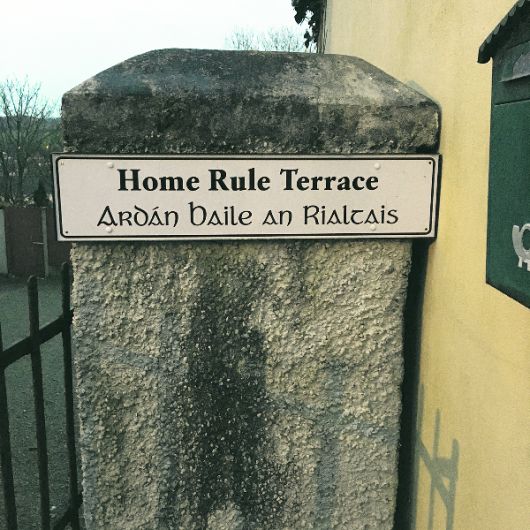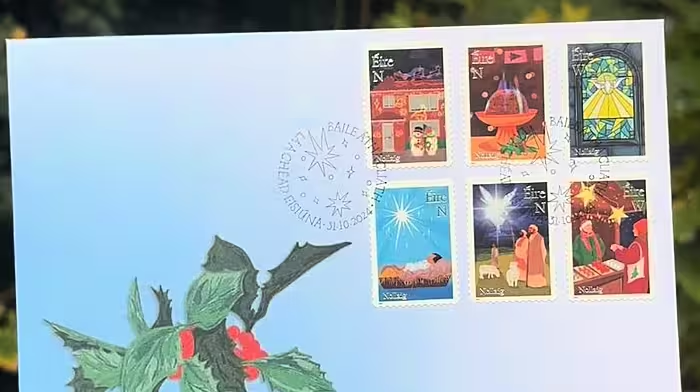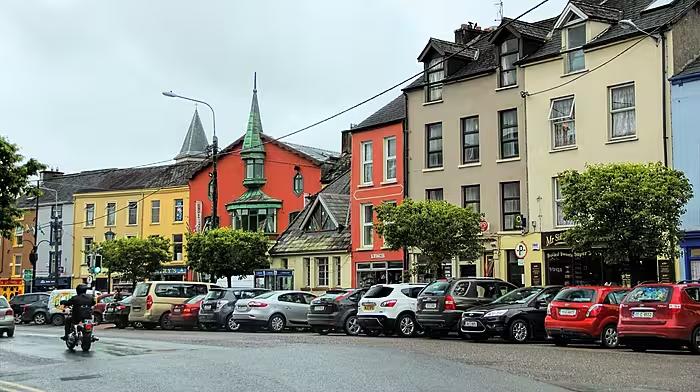The County Council may consider replacing a controversial Irish Skibbereen street sign with one that bears the correct translation.
By EMMA CONNOLLY
THE County Council may consider replacing a controversial Irish Skibbereen street sign with one that bears the correct translation.
There has been widespread criticism of the Irish language street sign at Home Rule Terrace in the town which reads ‘Árdán Baile an Rialtais’ – and directly translates as ‘Terrace of Government Town.’
‘Féin Rialtais’ is the usual recognised translation of ‘Home Rule.’
A letter to this newspaper described the translation as ‘woeful’ while comments on the Southern Star Facebook drew even more criticism.
The Facebook conversation alerted Aileen Loughrey, Irish Language Officer with Cork County Council, to the problems with the sign. ‘I don’t know the background behind why that particular translation was chosen, but from an historical context it would not accurately reflect the meaning behind the name of the terrace,’ she agreed.
She said she had been informed that the sign had disappeared for many years and had only recently resurfaced.
‘It seems that quite a few years back (prior to the time of many of the current staff ) there was a joint project between Cork County Council and a local history society. The society wanted to erect signs on certain laneways and terraces which had historic names, but had no signs present.
The Council agreed, and the signs were organised. There were a couple of native speakers consulted and,as there was no consensus between the two, a third party was consulted to adjudicate. This party – who is not known – came up with the translation currently on the sign. We do not know who put the sign back up. The Council will of course consider replacing the sign with a new one, bearing a correct translation,’ she said.
The normal procedure when erecting an Irish sign is to conform with the version of the placename on the Logainm.ie database, where possible, she said.
‘This is a database of archival records and placenames collected through research conducted by the State. We have, on a rare occasion, consulted with staff from Logainm.ie for advice where the placename does not currently exist in their database.’
Ms Loughrey said that in lots of cases not only language, but historical context, played a big part.
‘Indeed in this example, if each word were taken individually, it would not be wholly inaccurate in the entirely literal sense of each word. ‘Baile’ can mean both ‘home’ and ‘town’ , ‘Rialtas’ means ‘government’ and comes from the same root word ‘riail’ (to rule/govern). However, as correctly pointed out by your reader, this translation is unsuitable in this context as it has no correlation to the correct meaning of the name, with relation to the Home Rule movement of the late 19th century, early 20th Century.
‘There are often discrepancies also between the chosen local spellings of a name and the official one, such as in places like Baile Bhúirne, where many of the locals were brought up spelling it as Baile Mhúirne. While there is only a difference of one letter, it confers an entirely different meaning on the name of the place. These are aspects which need to be considered.’
Cork County Council strives to be a local authority where the Irish language is welcome and encouraged, she said. However, Ms Loughrey added that the Council relies on the public to inform them of signage issues. ‘It is worth noting also that how quickly we remedy these issues is dependent on provisions within our budget. Some years this is not much of an issue, while other years, after severe weather conditions cause unforeseen damage , it can remain “to be done” while urgent works are carried out as a priority,’ she added.







